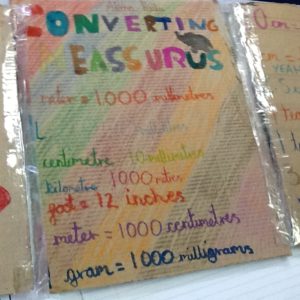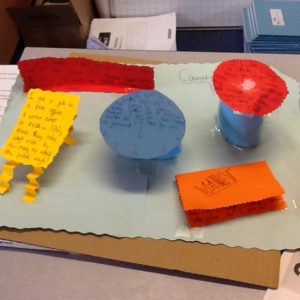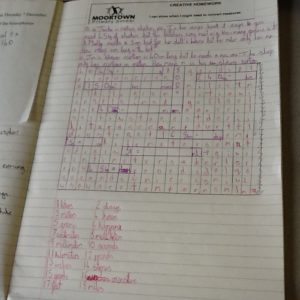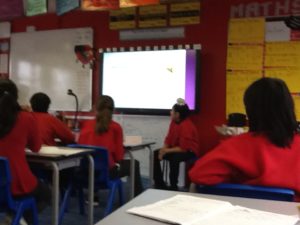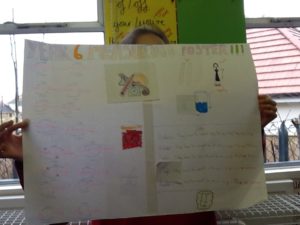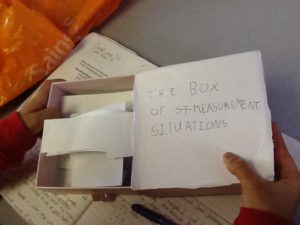This week’s homework is Practice Makes Perfect and is due on Thursday 11 January.
Each child has either a number of decimal calculations to solve independently or a problem sheet in the context of length and swimming.
This week’s homework is Practice Makes Perfect and is due on Thursday 11 January.
Each child has either a number of decimal calculations to solve independently or a problem sheet in the context of length and swimming.
Create ways for you to remember how to spell these words and generally practise using the strategies in the back of your homework book. Spelling practice is best done little and often so make sure you come back to the spellings at least three times in the week. Date your practice and ask an adult to sign it to show that you’re practising regularly. There will be a test on Friday 12 January.
Our attendance figures for Autumn are really encouraging – thank you to all the parents and carers who have helped to ensure children are in school as much as possible.
The whole school attendance figure is 96.8%. This is a little higher than for the same period last year (96.3%), which we’re really pleased about. Let’s aim to get higher than 97.0% by the end of the Spring term.
The year group totals are:
Well done especially to Years 4 and 5, both of which have attendance quite a lot higher than the school average!
I hope you’ve all had a lovely break over Christmas and Happy New Year to everybody.
Year 6 had a lovely start to the new year yesterday, adapting straight back into school life with focus and a positive attitude. We started an investigation into the Three Little Pigs who have been arrested on suspicion of boiling the wolf alive!
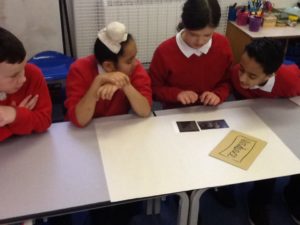
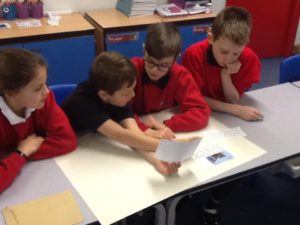
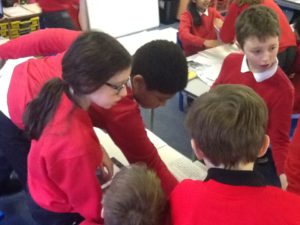
After gathering all of the evidence, we created a crime investigation board, locating connections between the different clues and, therefore, piecing the story together.

Take a look at the news reports at home here.
We’ve also started a science investigation into solutions and how to separate them and have started to look at working with decimals in Maths.
To continue helping at home, help us to practise our times tables three times a week and quiz us on our spellings in the car, on a walk or while eating breakfast. It would also help if you asked us about our reading every now and again too.
The Key Stage 2 tests (commonly called SATs) are in May:
New style National Curriculum tests were introduced in 2016. This video lasts around five minutes and gives you a useful overview of the tests.
As always, speak with us if you have any questions, comments or concerns.
We all had our final sessions in the kitchen this week making gingerbread but using no refined sugar. We substituted sugar for honey which, as a natural ingredient, is better for you.
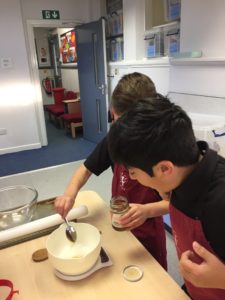
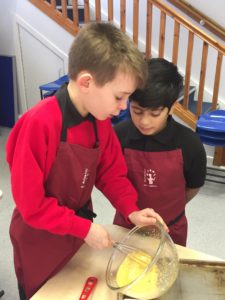
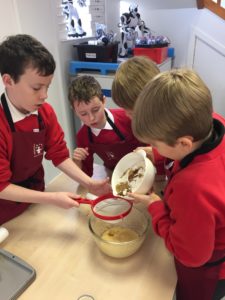
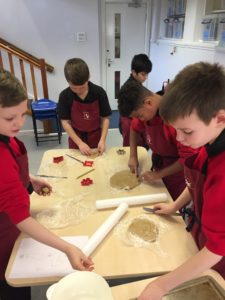
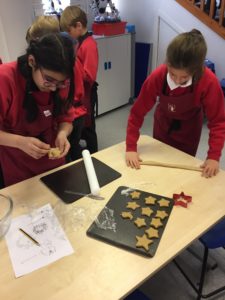
Once we prepared everything and cooked it, we worked together to make fantastic gingerbread creations. Which is your favourite?
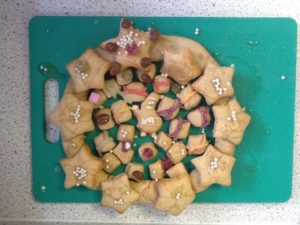
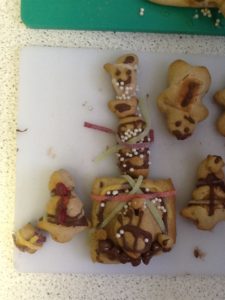
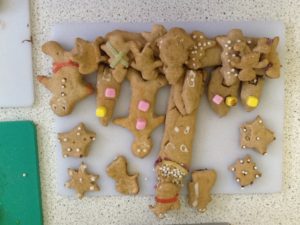

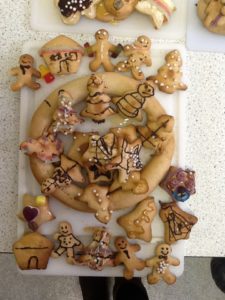
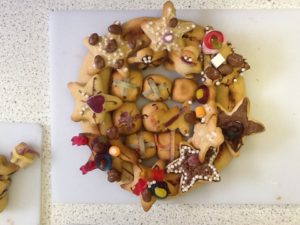
After the holidays, Year 5 and 6 will start a new class novel: The Boy in the Tower. Here’s the blurb to give you a sneaky peak.
When they first arrived, they came quietly and stealthily, as if they tiptoed into the world when we were all looking the other way.
Ade loves living at the top of a tower block. From his window, he feels like he can see the whole world stretching out beneath him.
But one day, other tower blocks start falling down around him. Strange, menacing plants begin to appear and no-one knows where they came from.
Now their tower isn’t safe anymore. Ade and his mum are trapped and there’s no way out…
Here are some reviews:
I’ve given the children the Year 5/6 spelling list for them to choose ten words which they feel they need to practise.
We’ve discussed that spelling practice should be little and often rather than being completed all in one night. The practice the children have been doing has improved massively from the beginning of the year (and there are lots of good examples for you to take a look at on the website). However, we’re now going to work on maintaining this standard by practising little and often.
I’ve asked the children to date the practice they do and make sure that they complete a small amount at least three times during the week.
These spellings will then be tested by their partner as we’ll all be learning different words.
In a time when many local authorities have stripped away the support they previously provided to school, Leeds continues to provide support to its schools. Our School Improvement Advisor visited recently and had lots of positives to tell us about:
The qualities of teaching… endorse the strong end of year outcomes, which have become typical of Moortown. Informal observations across the school verified the good subject knowledge and understanding of the national age related expectations for each member of the teaching team. For example, in Year 1, the temporary teacher led a writing session whereby pupils of all abilities were able to reap success.
Maths teaching observed… provided evidence of the school’s focus on lesson starters designed to develop arithmetical understanding. In each lesson, good subject knowledge was apparent.
It is very clear that pupils understand why they should behave well, rather than doing it because they are told to. Behaviour in each of the lessons seen was impeccable.
The early years classroom provides a well organised, welcoming and productive environment in which children can learn. Very well modelled behaviour and expectations from adults result in children quickly working well together, developing positive behaviour and an eagerness to try new things.
The Topic Book scrutiny evidenced a rich curriculum whereby children are afforded frequent opportunity to apply their reading, writing and mathematical skills beyond the core curriculum. The children’s books evidence an equality of demand for all abilities. Books also evidence a wealth of lessons that provide for ‘active learning’ opportunities…
I was really impressed with the Creative Homework this week. There were all sorts of great ways to shows when and how we convert measures, many of which we’re going to keep in class for the children to use during lessons.
